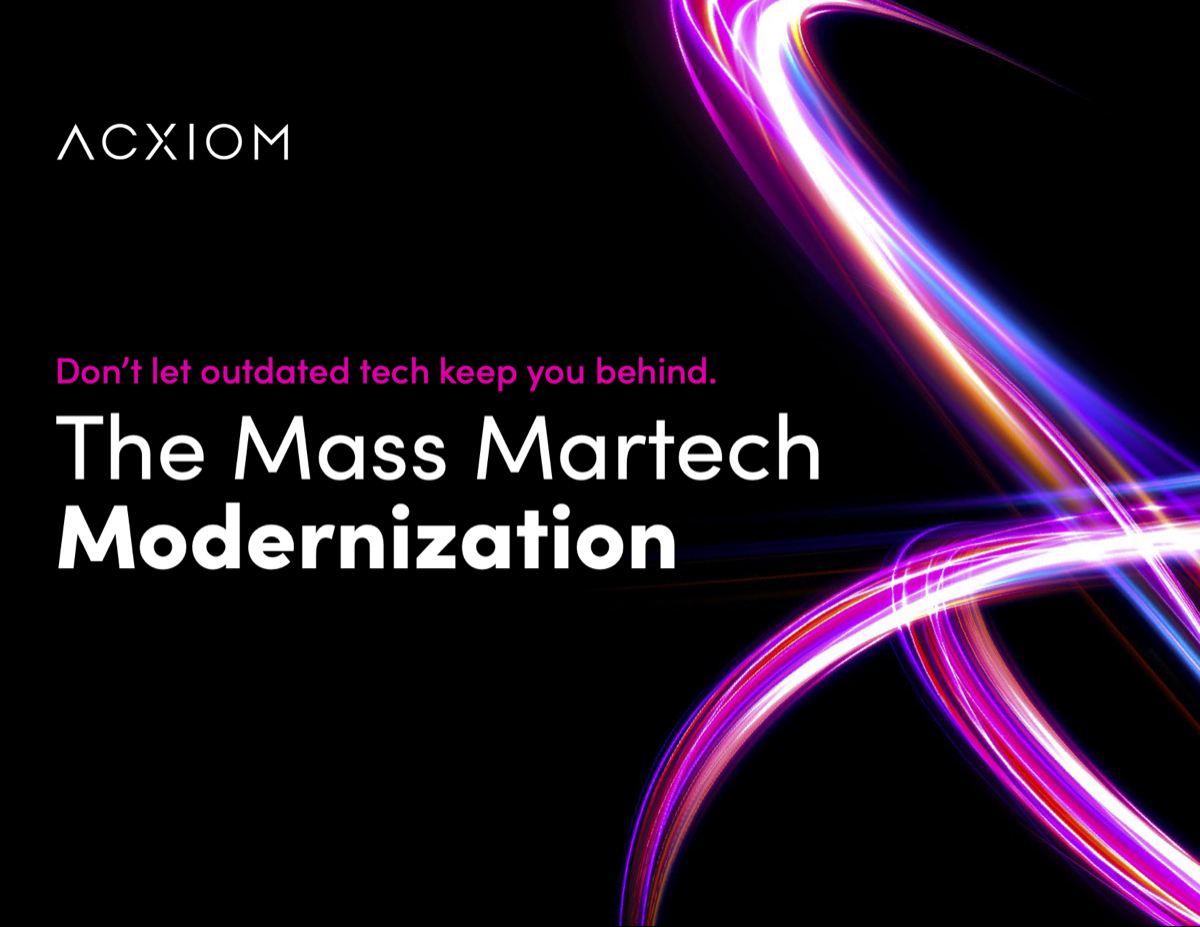In 2011, there were 150 marketing technology products on Scott Brinker’s martech landscape. In 2024, there were 14,106. That’s a stupefying 9,304% growth over the past 13 years. And no, that’s not a typo.
If you had to explain this gargantuan explosion of new martech in just two words, ‘the cloud’ would be a pretty good bet. The emergence of software-as-a-service not only made it possible for a whole new generation of technologists to create solutions for marketers but also utterly transformed how (and how much) marketers can leverage technology.
So given the size of today’s martech landscape and the ubiquity of cloud-native tools, you might reasonably assume that most modern marketing operations are hosted in the cloud.
You’d be wrong.
Most marketing operations are still run on-premise
We recently surveyed over 200 US and UK decision-makers responsible for martech in their organization, to better understand how they’re approaching martech modernization.
On average, respondents report that 56% of their marketing operations are still hosted on-premise. In fact, for nearly 1 in 5 businesses, over 70% of marketing operations aren’t yet hosted in the cloud.
The reality is, that even though marketing teams have access to more cloud-based technologies than ever before, the majority of what they’re doing is still confined to legacy platforms running in privately hosted data centers.
The problem? It’s preventing them from making the most of the cloud’s performance, scalability, flexibility, and cost efficiency, and is limiting their ability to move forward with emerging technologies such as real-time personalization, machine learning, and artificial intelligence.
“We want digital to be our primary channel of acquisition by 2026. We’re not far off, we’re getting there, but the infrastructure and the stack we need in place to be able to do that has not been there. We’ve got some real legacy systems where we’ve acquired solutions over the years and then patched them together, and we’re now really starting to see the after-effects of that.”
That’s a quote from a director of marketing at a large insurance company. But it’s a sentiment shared by many in marketing. According to our research, 53% of decision-makers say some of their marketing technologies are no longer fit for purpose, with 44% reporting their current martech solutions are outdated.
Key challenges of outdated martech
This over-reliance on an on-premise model of software delivery naturally has an impact on the way marketers do marketing. But it also impacts the way they work with other teams.
When asked about the biggest obstacles in the way of achieving their marketing goals, the top two challenges are cited as issues with measurement and attribution, and problems collaborating with other teams on shared objectives.
One of the critical benefits of cloud computing has been its ability to give multiple team members and stakeholders a single environment in which to collaborate. So marketers still reliant on legacy technologies to access critical data are inevitably limited in their capacity to align their work with that of others. Indeed, 68% of marketers report that one of their key challenges is the fragmentation of data in disparate silos.
This fragmentation then impacts their ability to build a complete view of their customers, makes intelligence and personalization impossible, and prevents them from measuring the performance of marketing efforts, particularly when they’re split across multiple channels, touchpoints, and disciplines – not to mention the added fragmentation of response data and formats across an increasingly complex landscape of walled gardens and paid media channels.
So what’s keeping marketers away from the cloud?
Unsurprisingly, two of the top challenges preventing marketers from moving to a cloud-based martech stack are compliance and security. For some organizations, the first problem is an issue of time.
According to one head of marketing at a large US bank, “it took about two years to get legal and compliance comfortable with having PII in the cloud…”
But the issue of ensuring data security is arguably an even bigger one, due to the many interconnected technologies that go into the modern martech stack, and the range of stakeholders and user groups that are responsible for using and proliferating all that data. Even in industries that aren’t highly regulated, keeping data safe is rightly a bigger priority than collaborating with a little more ease. At the end of the day, no matter how intelligent, sophisticated, or effective a business’ martech strategy is, the financial and reputational cost of dealing with a potential data breach can simply be too high.
That said, the single biggest challenge marketers say they face when trying to move to a cloud-based martech stack is a lack of internal experience.
Identifying and securing internal expertise to guide cloud migration is seen as the greatest challenge, and is cited by almost a third (32%). Lack of internal martech expertise appears to be a wider issue, with only 12% saying they have a dedicated team responsible for martech operations and strategy, and just 10% strongly believing they have the necessary skills internally to manage their current martech solutions.
Working with an experienced martech services partner like Acxiom can fill the current gap in martech expertise. We can help you with all the challenges that come with a move to the cloud, whether that’s ensuring compliance with industry regulations, configuring and optimizing cloud-based marketing operations, assisting with data security, or developing a cloud migration strategy.
It’s exciting to live in a world in which marketers have access to tens of thousands of potential solutions in the cloud. With our help, you can make sense of all that possibility and translate it into a coherent vision for modern marketing.
To learn more about how decision-makers in the UK and the U.S. are evolving their martech stacks, read The Mass Martech Modernization.


